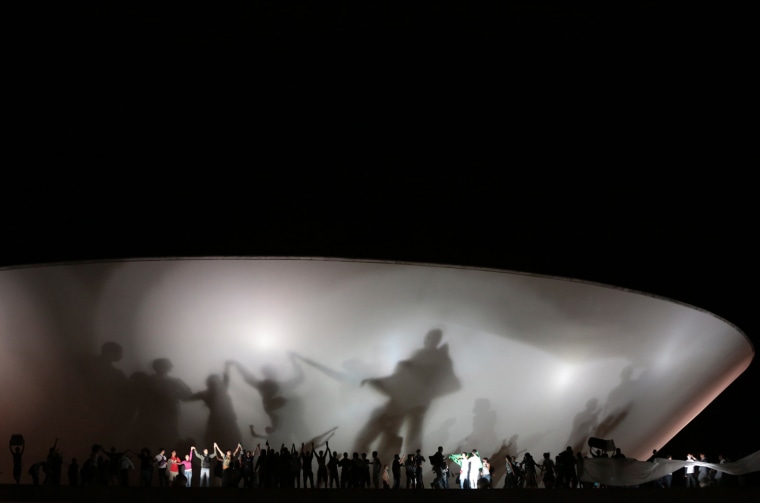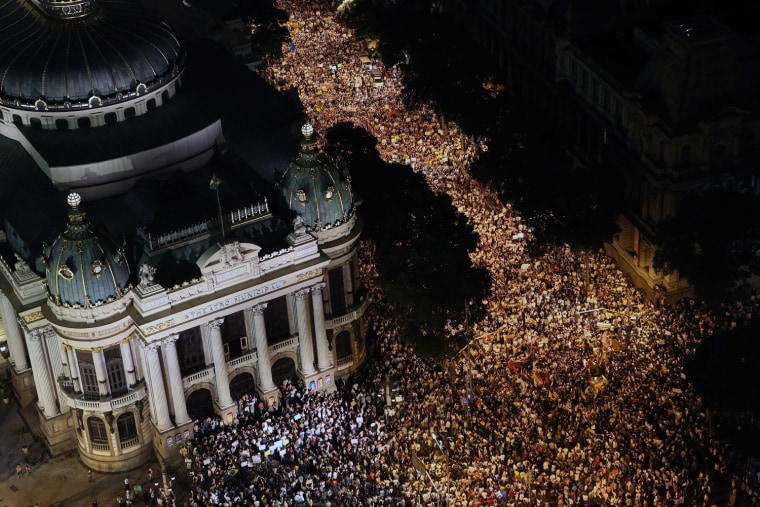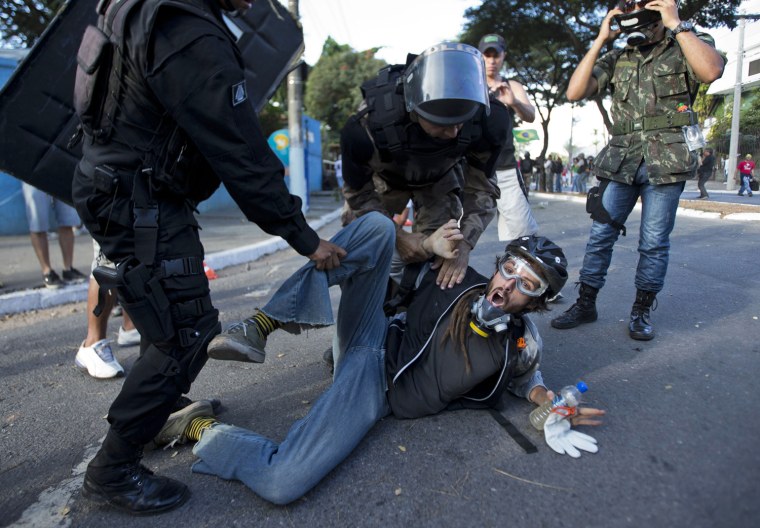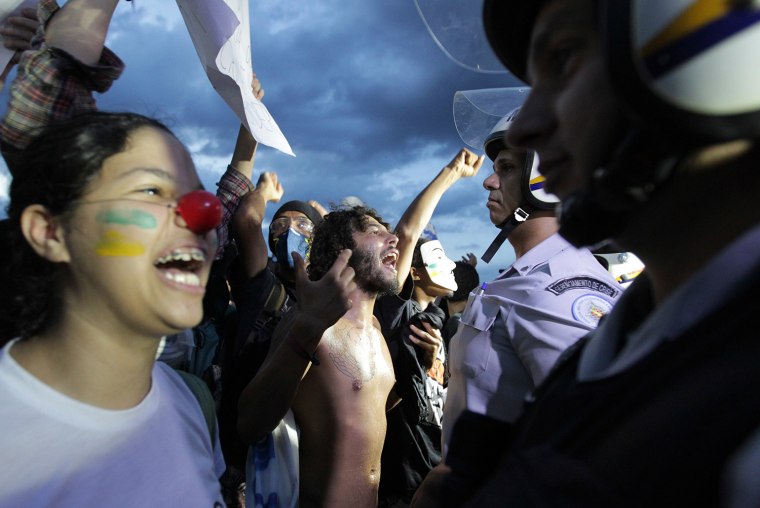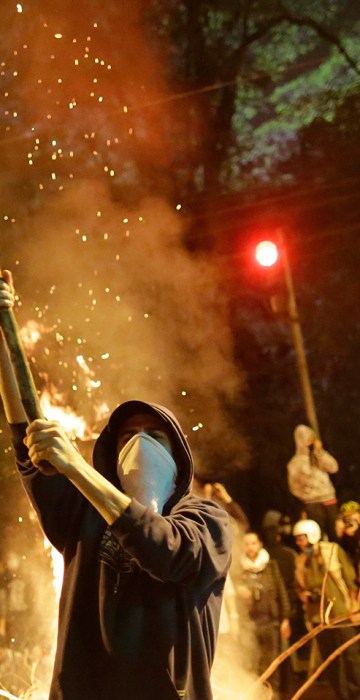
World
Brazil unrest
It was a relatively small protest against an increase in transport fares that ended up igniting the unrest that has shaken Latin America's largest country and economy.
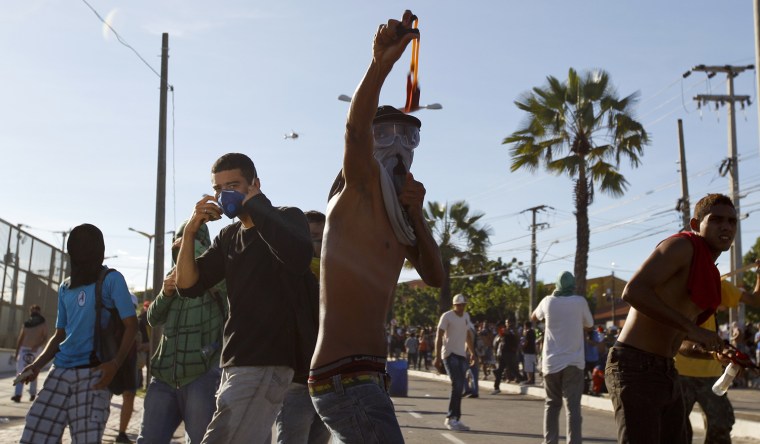
A protester uses a sling shot against police near the soccer stadium where Spain and Italy met in a Confederations Cup soccer semifinals' match in Fortaleza, Brazil, on June 27, 2013. It was a relatively small protest against an increase in transport fares, and an ensuing police crackdown earlier this month, that ended up igniting the unrest that has shaken Latin America's largest country and economy. Several Brazilian cities have since agreed to roll back the fare increases, but the leaderless protest movement has widened its focus to a litany of grievances, including the billions of dollars spent on soccer stadiums for the 2014 World Cup.
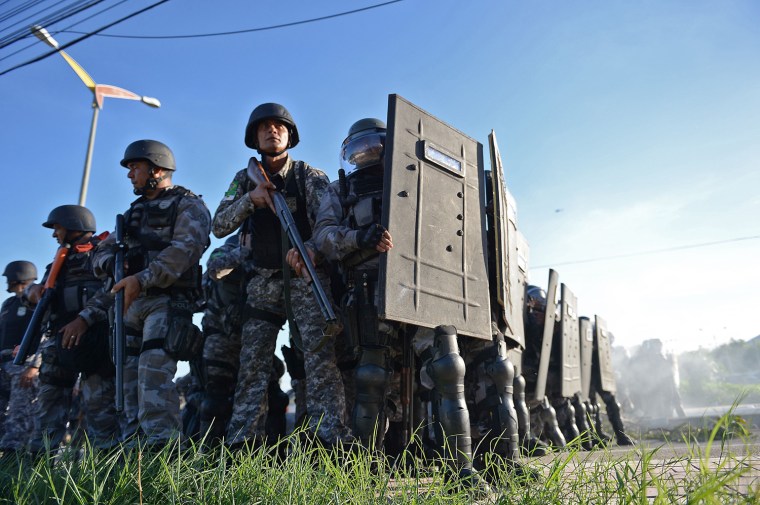
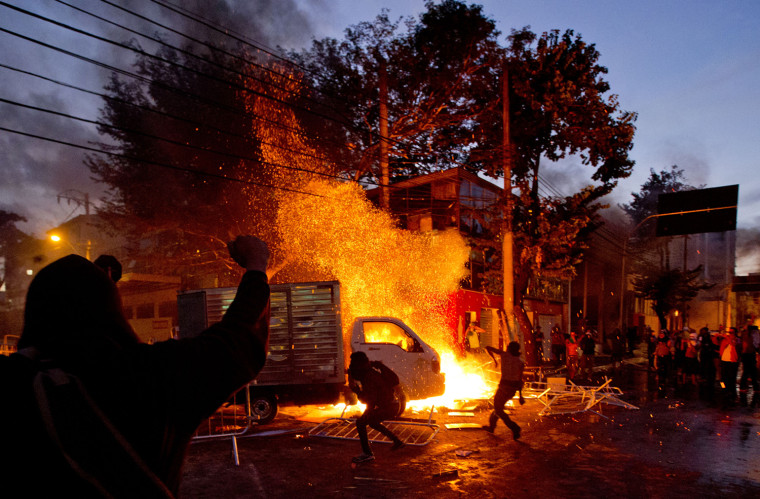
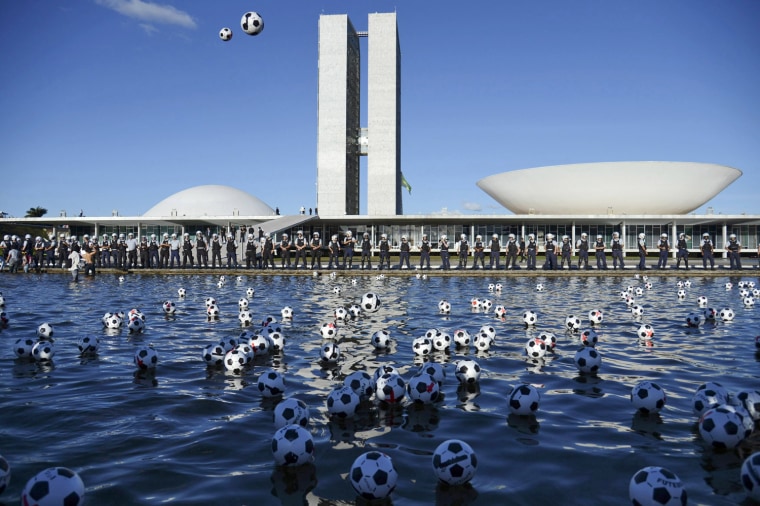
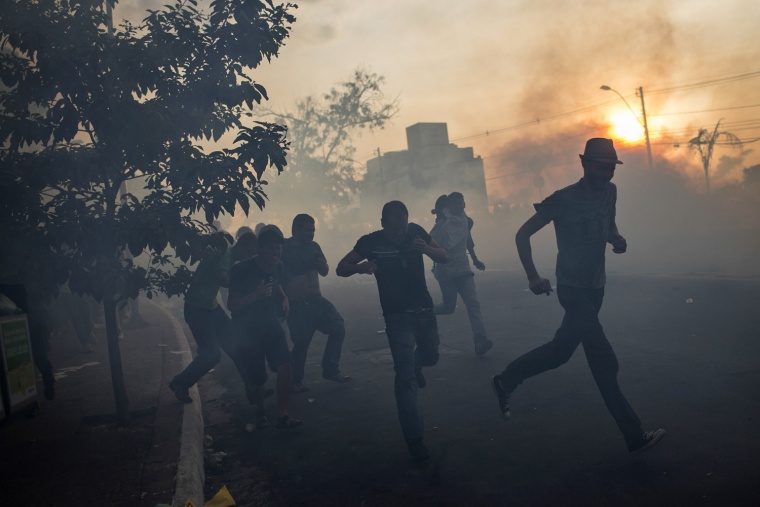
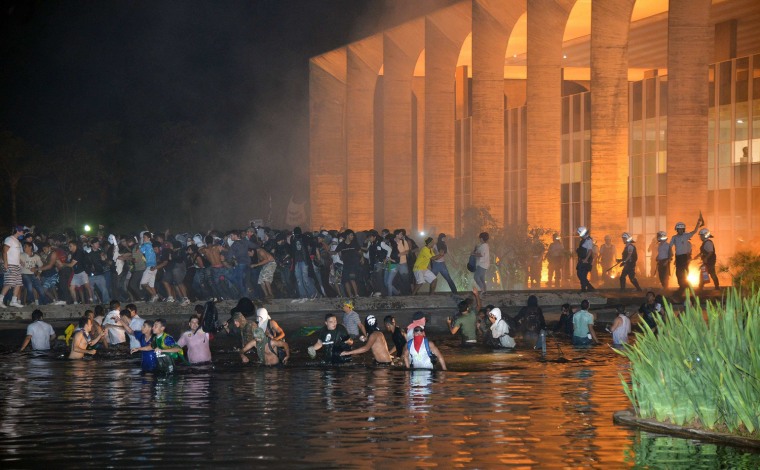
Demonstrators outside Itamaray Palace in Brasilia, Brazil, on June 20, 2013. Police stopped a group of demonstrators from invading the headquarters of Brazil's Foreign Ministry, but the building sustained some damage, according to official sources. More than a million people took to the streets late Thursday in Brazil's biggest protests for two decades. The demonstrations began more than a week ago over high transport fares, but they have broadened out to highlight corruption and the cost of next year's soccer World Cup.
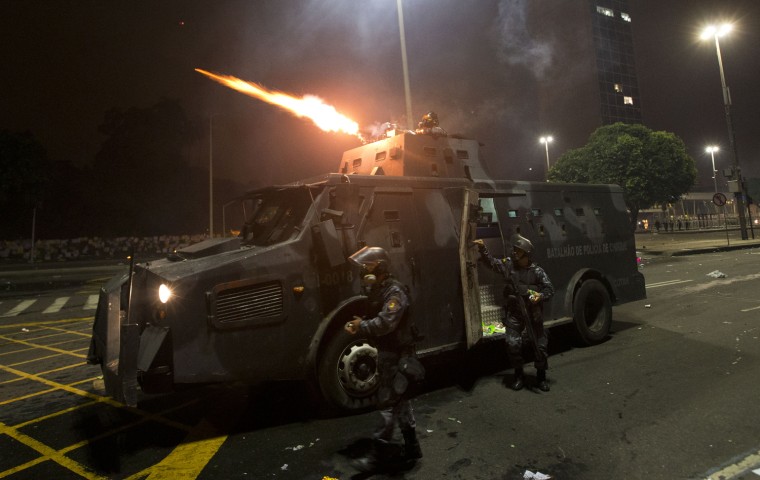
Military police fire tear gas from an armored vehicle during an anti-government protest in Rio de Janeiro on June 20. Riot police battled protesters in at least five cities, with some of the most intense clashes happening in Rio de Janeiro, where an estimated 300,000 demonstrators swarmed into the seaside city's central area.
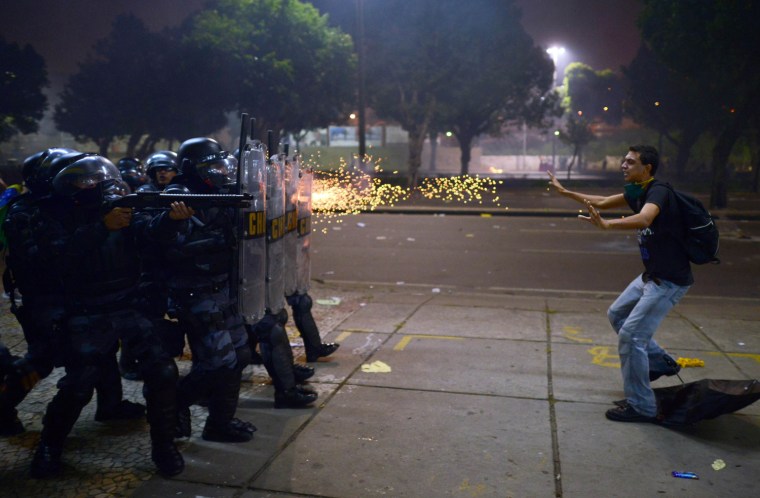
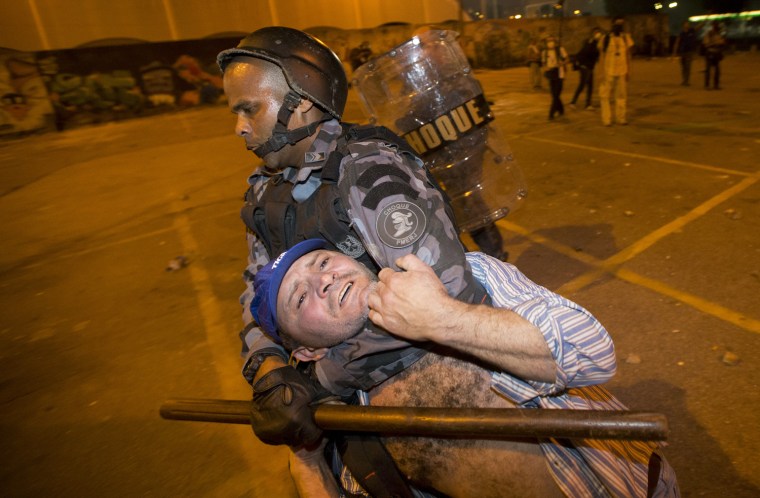
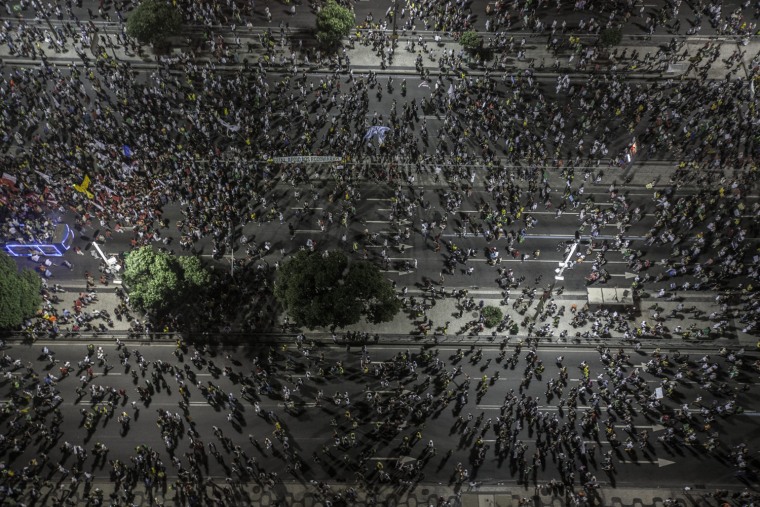
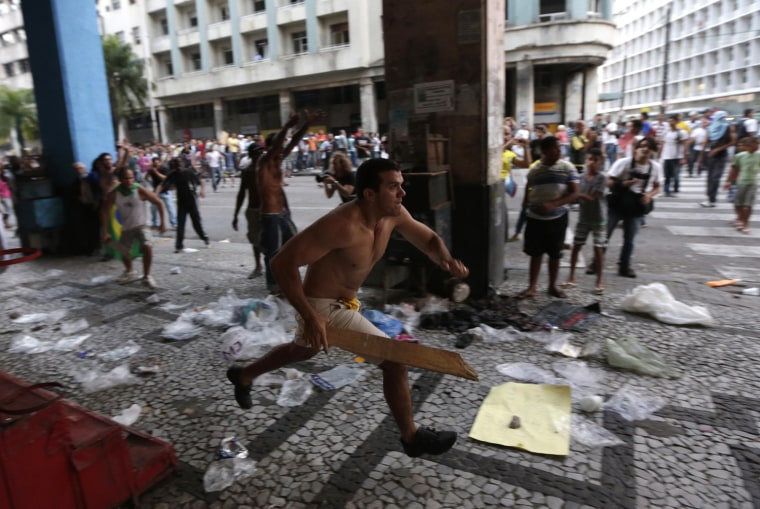
A demonstrator chases vandals (unseen) during a protest in Recife on June 20. Tens of thousands of demonstrators marched through the streets of Brazil's biggest cities on Thursday in a growing protest that is tapping into widespread anger at poor public services, police violence and government corruption. Protesters are using the ongoing Confederations Cup soccer tournament as a means to amplify their concerns.
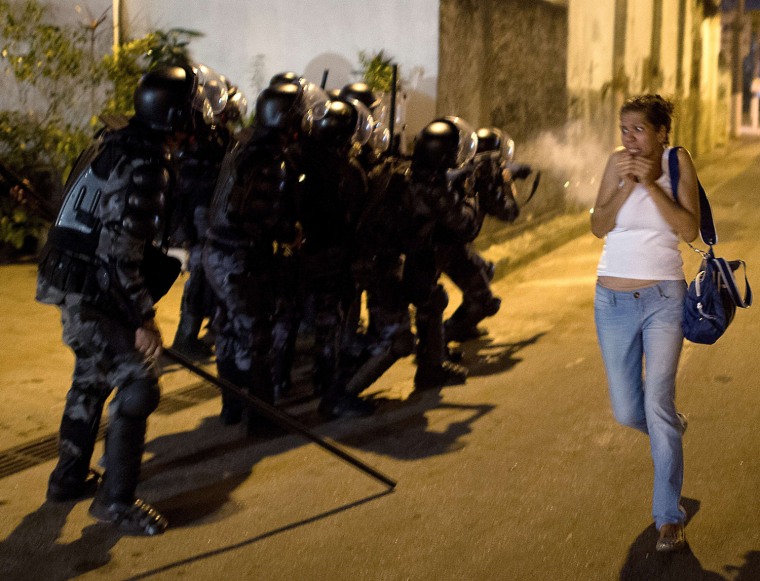
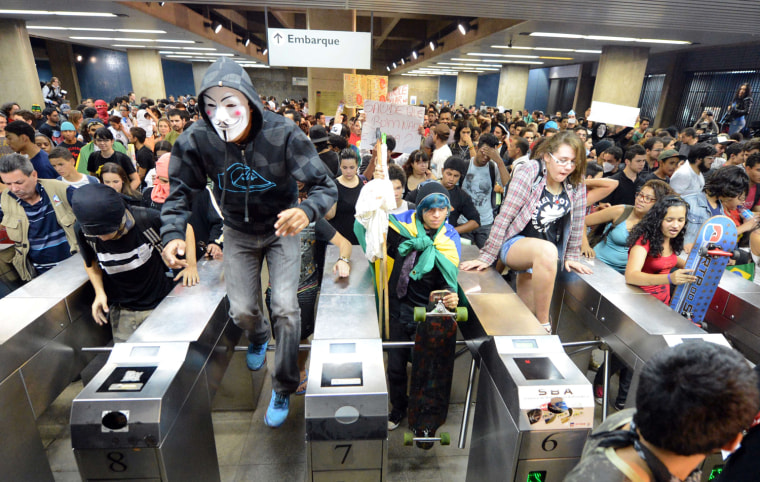
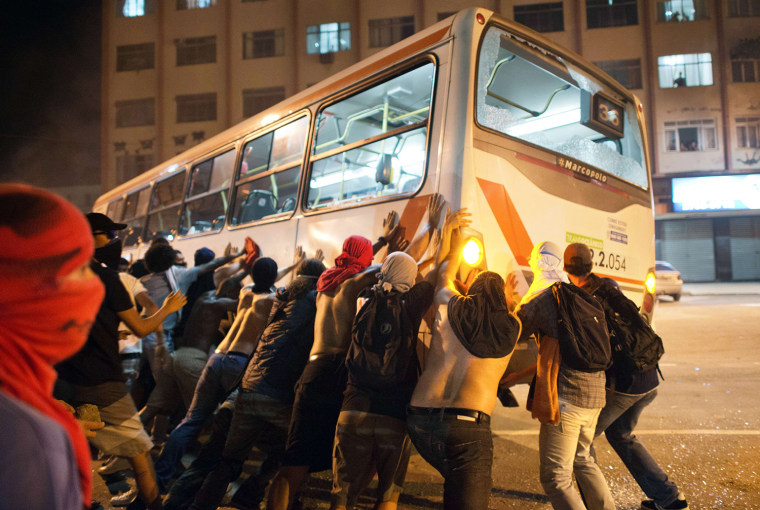
Demonstrators overturn a bus late on June 19, in the center of Niteroi, 6 miles from Rio de Janeiro. Protesters battled police late on June 19, even after Brazil's two biggest cities rolled back the transit fare hikes that triggered two weeks of nationwide protests. The fare rollback in Sao Paulo and Rio de Janeiro marked a major victory for the protests, which are the biggest Brazil has seen in two decades.
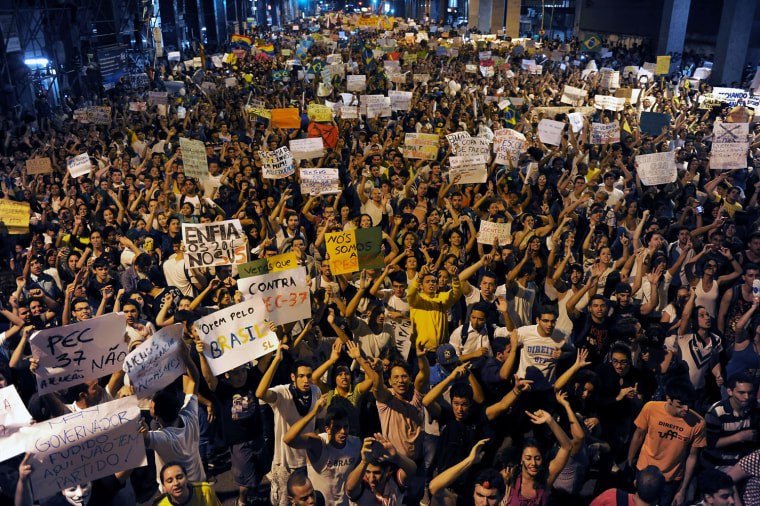
Thousands of demonstrators walk through downtown Niteroi on June 19. Initially sparked by a hike in Sao Paulo bus fares, protests quickly spiraled into nationwide marches against corruption, fueled by anger that -- in a country with a wide rich-poor divide -- billions of dollars were being spent on stadiums and far too little was earmarked for social programs.
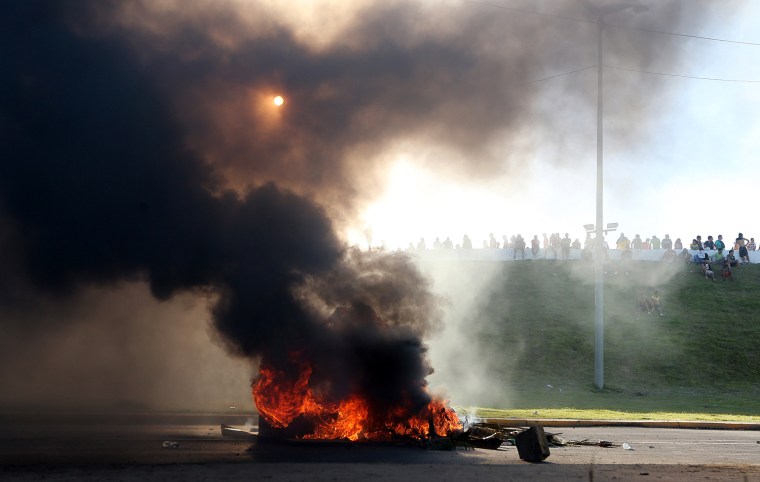
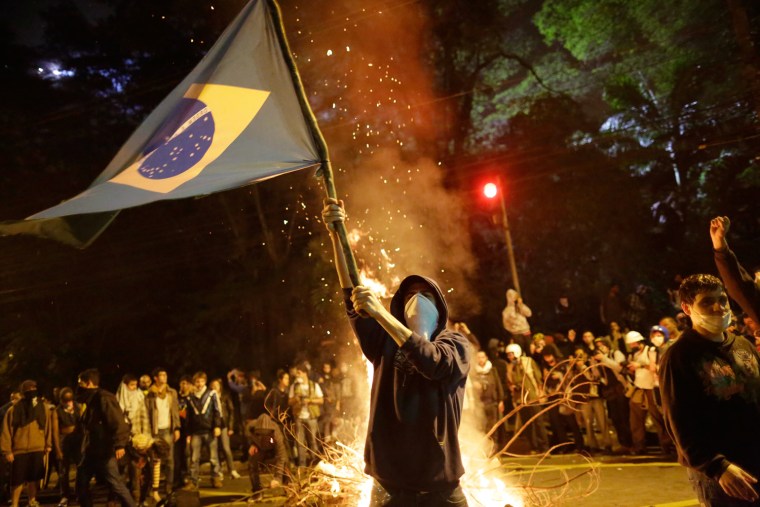
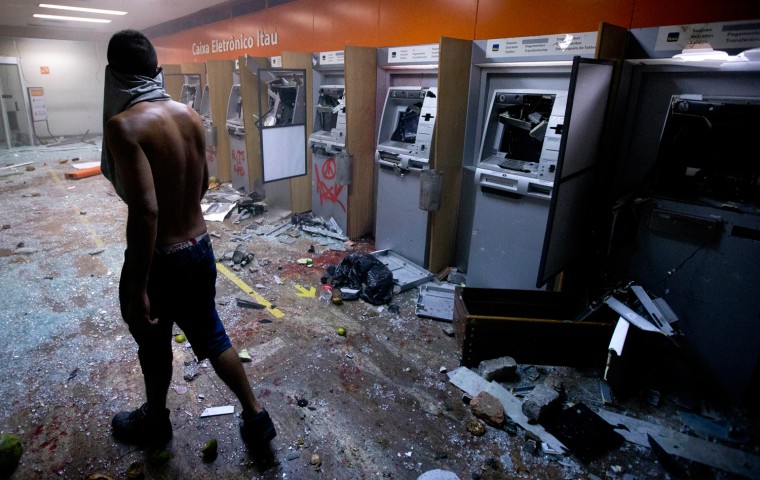
A protester looks at vandalized cash machines at a bank during a demonstration in Rio de Janeiro on June 17. Thousands took to the streets in largely peaceful protests in at least eight cities in Brazil Monday, demonstrations that voiced the deep frustrations Brazilians feel about carrying heavy tax burdens but receiving woeful returns in public education, health, security and transportation. Officers in Rio fired tear gas and rubber bullets when a group of protesters invaded the state legislative assembly and later vandalized and looted properties in the area.
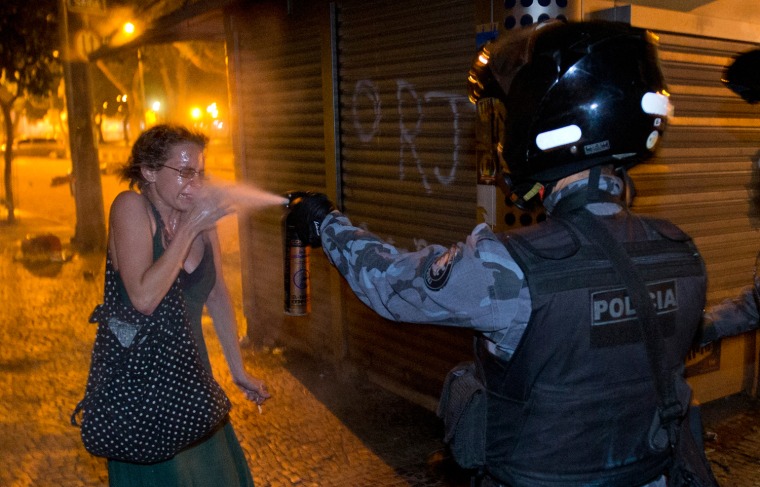
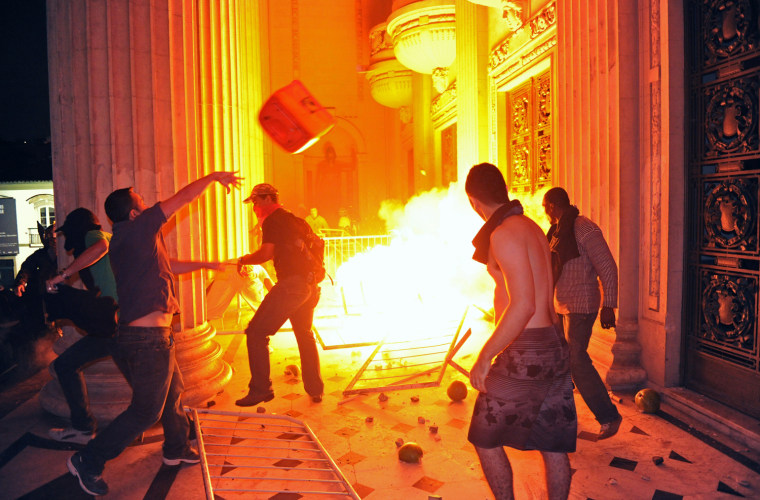
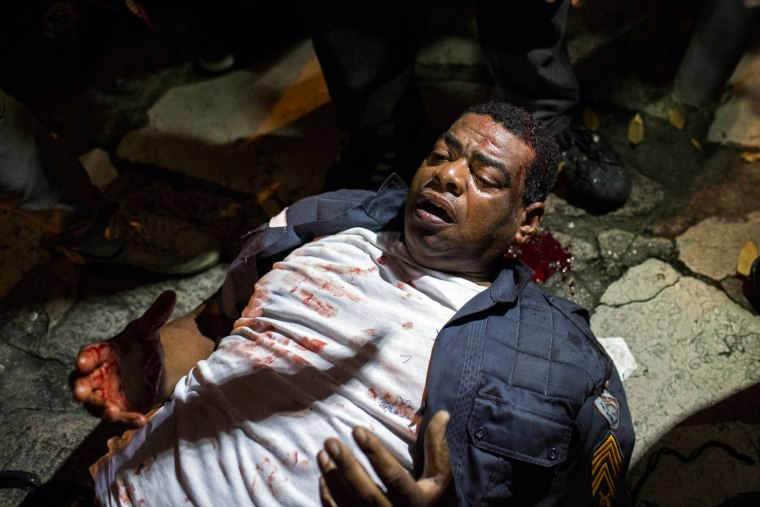
A policeman lies injured on the ground after clashing with demonstrators during a protest in Rio de Janeiro, on June 17. Officers in Rio fired tear gas and rubber bullets when a group of protesters invaded the state legislative assembly and threw rocks and flares at police as protesters massed in at least seven Brazilian cities Monday for another round of demonstrations voicing disgruntlement about life in the country, raising questions about security during big events like the current Confederations Cup and a papal visit next month.
